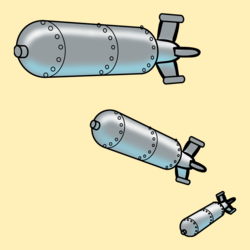 Continuing this multi–week series of posts based on themes raised by Paul Collier’s book The Bottom Billion, this week’s topic is Military Intervention. It is fairly difficult to get anyone excited about military intervention after the disastrous experiences of recent years in Afghanistan and Iraq, but nonetheless many people have been wondering whether a brief military intervention could solve the manifold problems in countries such as Zimbabwe.
Continuing this multi–week series of posts based on themes raised by Paul Collier’s book The Bottom Billion, this week’s topic is Military Intervention. It is fairly difficult to get anyone excited about military intervention after the disastrous experiences of recent years in Afghanistan and Iraq, but nonetheless many people have been wondering whether a brief military intervention could solve the manifold problems in countries such as Zimbabwe.
In the 1990s, the international intervention in Kuwait to expel an aggressor was regarded as a great success, but it was quickly followed by a failed intervention in Somalia to restore order following the toppling of a government. Some 15 years later, Somalia remains a basket case. Perhaps the Somali failure helps to explain the west’s failure to intervene in the Rwandan crisis. More recently, the British intervention in Sierra Leone was a success..
Collier argues that United Nations forces are rarely successful because they are too concerned about staying out of danger. Domestic militaries tend to be part of the problem, rather than part of the solution, so there is a strong case for external military intervention in appropriate cases. Collier argues, controversially, that if governments in poorer countries could be given a guarantee of external military intervention in the event of instability, there would be less reason for high military spending, so that the countries could focus spending priorities more productively.